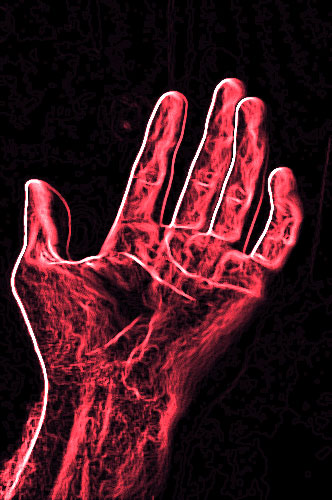
Alien hand syndrome is a condition where a person’s hand seems to take on a mind of its own (a la Dr. Strangelove). They may walk in to a room and turn on the light with their right hand. Their left hand turns it off. Right hand on, left hand off. They have sensation in the hand but lose the sense of “ownership.” Oftentimes, the person will remain unaware of what their “alien” hand is doing until it does something that draws attention to itself. It’s really weird. Or is it?
Out Of Consciousness Impulses
Their hand is acting on what we might call ‘out of consciousness’ impulses. That’s just what it sounds like. The brain sends commands to the hand but the rest of the mind is unaware of those commands and often unaware of the actions themselves or the motivations that drive the actions.
What Causes Alien Hand Syndrome?
Alien hand syndrome occurs sometimes when folks have had the two hemispheres of their brain surgically separated or sometimes in people who’ve had strokes, brain lesions or infections. But that’s different than saying what causes it. Here’s my theory.
Do We All Have Alien Hands?
People might assume that these alien hand, out of consciousness impulses occur because of some damage to the brain. I think they simply become more obvious because of damage to the brain. In other words, we all have impulses which may or may not run counter those we are aware of or might direct consciously. All of us.
Think about it.
What Does Alien Hand Syndrome Teach Us About Our Own Minds?
One of the fundamental mistakes many people make when thinking about personal change is assuming that they are a single thing, thought or motivation. In any context, you might have multiple motivations. Here’s an example…
You see a $10 bill on the sidewalk.
- Motivation #1: “It would be cool to have $10!”
- Motivation #2: “I would like to return this $10 to whoever lost it. I bet they’d be thankful.”
- Motivation #3: “If someone saw me picking this up, what would they think of me?”
- Motivation #4: “My mother told me that money was dirty. Maybe it’s full of germs.”
Run Silent, Run Deep
Many times these motivations are not fully conscious. They run beneath the surface and result in a feeling that drives an action (such as picking up a $10 bill or not). Where our motivations are congruent (all pointing toward the same outcome–such as picking up the $10), we experience fluid, easy action. Where they are not congruent (part of us wants to pick up the money and part of us doesn’t) we may have conflict.
In conflict, we have motivations fighting against each other. One part of us may want to exercise and another part might want to lay on the couch. One part wants to stop smoking but another part knows it will help us relax. We can use hypnosis, NLP and lots of other methods to reach, alter and redirect many of these unconscious impulses. When we get those impulses to be in alignment with each other, things become smoother.
Simply put, where we have conflicting impulses, there is the potential for problems in our lives. Where the impulses are aligned, we kick ass!
What Would Happen If….?
What would happen if we had these conflicting impulses but there was no communication in there between the parts of the mind that had those conflicting impulses. What if one part of the mind wanted a light on and another part wanted the light off? Alien hand syndrome, that’s what!
Simplistic But…
I think this is an overly simplistic model of how the mind works. For one, motivations that may be at odds with each other are not necessarily easily divided up in to conscious and unconscious motivations nor left and right hemispheres. But as far as it goes, it does explain a lot about human behavior. We all have different criteria that come up in any context, we have impulses that may be out of consciousness. That’s one reason it may be difficult to change using methods that only deal with the conscious mind.
Enjoy,
Keith


Your theory that alien hand syndrome is something that is inside all of us is an interesting one. Do you know if there are any studies that support this concept, or have you just come to believe it through your work in hypnosis? I am also wondering if you can relate this concept a bit more directly to hypnosis?
Hi Dan,
Good questions. I’m not sure whether there’s other evidence out there to support my theory or not. What I am sure of is that people do things of which they’re not aware. Lots of them. Constantly. Sometimes I’m communicating with those responses while I’m also communicating with a person in conscious conversation. With hypnosis, it’s mostly those out-of-conscious or other-than-conscious channels we’re interested in. Why? Simply because if a person comes to a hypnotherapist for help, they’ve usually tried conscious channels.
In essence, as Milton Erickson said, (I’m paraphrasing), “Clients are clients because they’re out of rapport with themselves.” A conscious impulse and an unconscious impulse (or two or more unconscious impulses) are interfering with one another. And there’s the parallel to alien hand syndrome.
Keith